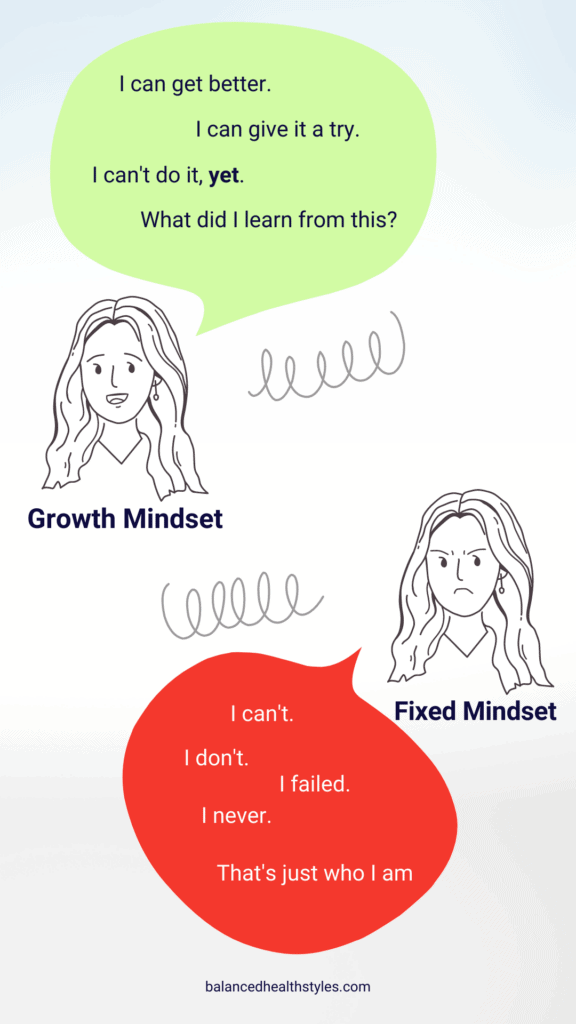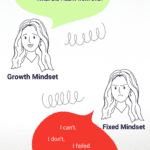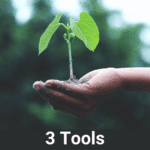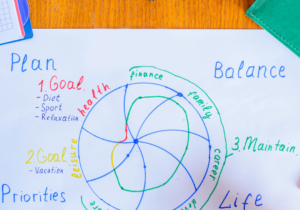Fixed mindset vs growth mindset: 3 Tools to develop a growth mindset
Pop quiz: Which of these statements represents building a growth mindset? “I’ve never done well on pop quizzes, so I probably won’t do well on this one.” Or, “I love pop quizzes because they’re fun and challenging, and I can practice getting better at them.”
If you answered the first one, you might have a fixed mindset. But don’t fret. You can flip the fixed-mindset switch with awareness and practice to develop a growth mindset.
Difference Between a Fixed and Growth Mindset
Dr. Carol Dweck is the pioneer of a growth mindset, and her works and videos are definitely worth a bit of your time if you’re interested in learning more.
Here’s a link to her enlightening book called, “Mindset: The New Psychology of Success” where she describes the fixed mindset by saying,
“In a fixed mindset, people believe their basic qualities, like their intelligence or talent, are simply fixed traits. They spend their time documenting their intelligence or talent instead of developing them. They also believe that talent alone creates success—without effort.”
People with fixed mindsets think their traits, like intelligence, talent, sense of humor, etc., are fixed. That they either have it or they don’t. There’s no getting better at them, and therefore not worth putting in the time to improve.
Those with a growth mindset believe they can improve their skills with effort and practice and tend to see challenges as something to overcome or work through.
Growth and fixed mindsets can sit on a continuum. Many of us have areas where we display growth mindsets, while in other areas, we might have more fixed mentalities. For example, some of my growth mindset areas include writing, cooking, nutrition skills, coaching, developing habits, and athletic abilities. Some of my fixed mindset traits include self-confidence, taking tests (in particular multiple-choice tests), and making and keeping friends.
Benefits of Building a Growth Mindset
1. You could learn something new
Instead of feeling frustrated every time you feel stuck because of a fixed mindset, you can turn that emotion into excitement at the prospect of learning something new or practicing getting better at it. And how much more excited do you think you might feel if every opportunity became something to look forward to instead of dread?
2. You’ll never “fail” again
Having a growth perspective means there’s no such thing as failure. There’s only the opportunity to learn from something that didn’t work. How much more do you think you might try if you never felt like you would “fail” at anything?
Think about it: if you never see challenges as impossibilities, you never feel stuck (or at least that feeling is short-lived). You can always create a way out. You’ll always be able to jump off that cliff and take a leap of faith that the water will be warm and deep.
3. Greater life satisfaction (It could make you happier)
“Evidence suggests that growth mindset individuals tend to be more satisfied with their lives because a growth mindset is more likely to lead to higher resilience and better emotion regulation to cope with daily stressors, which further influences their life satisfaction"
4. Prevents Boredom
Having a growth mindset means you’re always open to learning more (and complacency becomes a thing of the past). For example, if I already think I know everything about writing, I’m unlikely to find it satisfying after a while. But if I think I can continue to hone my craft and get better at it, I’m always challenged by it.
5. It Makes You a More Interesting Companion and Keeps You Humble
By recognizing that you don’t know everything, you’re always open to absorbing more and seeking to understand other peoples’ points of view. You become a more curious person, which leads to becoming a more interesting person to be around.
6. Opportunities Abound
When you develop a growth mindset, it takes away limits and gives you the freedom to try new things.
3 Tools for Shifting to a Growth Mindset
There are a few people who are naturally growth-minded, no matter what they’re trying to tackle. But for most of us, it’s not easy practicing having a growth mindset when you’ve had a fixed mindset for so much of your life.

Here are three tools to help you begin to develop a growth mindset:
1. Pay attention to your self-talk.
Listen for that voice inside your head that says things like “I can’t.” “That’s just who I am.” “I’m the kind of person who…” These are the voices of a fixed mindset. Gradually and kindly, change the talk. Combat that voice by saying things like, “If I put in more effort, I can get better at…” “If I think of x as an experiment, I can give it a try without any expectation, just seeking information about what happens.”
2. The Power of "YET"
Instead of thinking, “I can’t do x,” and you want to learn to do x, Carol Dweck says to remind yourself that, “I can’t do x, yet.”
For example, I have struggled with self-confidence my entire life.
Let’s say I’m trying to meet a challenge like passing an exam, and, as mentioned above, I’m not a good multiple-choice test-taker. My fixed mindset says, “I’ll never have the confidence to take that test and pass.” Bringing my attention to my self-talk, I can see I’m using a fixed mindset here and change my thought too, “I don’t have the confidence to take that test – YET.”
This growth mindset allows me to figure out how I might develop the skills that build the confidence I need to take the test. When I focus on changing my mindset to that of believing I have the ability to get smarter, it allows me to put in the extra time and effort it might take for me to pass a multiple-choice exam. Maybe I can find a study group or have my husband ask me test questions to prep. Without the ability to develop a growth mindset, I’ll continue to shut down and may miss out on meaningful opportunities.
3. See what you can learn
If you’ve “failed” at something in the past, instead of thinking you’re just going to “fail” at it again, see what you can learn from the time you didn’t achieve the outcome you wanted and apply that going forward to figure out steps that might get you a different outcome the next time. Basically, that means learning from your previous experiences and using them to move you forward and try something different the next time.
Use a Growth Mindset to Make Healthier Lifestyle Choices
Now that you know what a growth mindset is, and how to begin noticing your self-talk to use it more often, how might you apply it to making healthier choices?
Here are a few ways to take your growth mindset out for a spin when it comes to healthy choices.
Instead of assuming you can’t retrain your brain and body to do things like recognizing hunger and fullness cues, know that it can take a long time, but there are ways to practice using simple techniques (there’s that growth mindset) to reach your goals. And then make practicing those skills a habit
Check in weeks and months later to see if you’re noticing your hunger and fullness cues more often. As a long-time overeater, this one took me a long time to trust. In the end, I truly believe it’s what’s allowed me to get off the diet bandwagon once and for all and maintain a healthy weight and a consistent energy supply.
Do you have a growth mindset?
Find out with this short quiz
The Mindset Experiment
The point is, that going into your healthier lifestyle choices using a growth mindset can get you so much further than thinking you’re stuck.
This same experiment (and I say experiment because this is a wonderful way to engage your growth mindset) can be applied to an endless number of lifestyle choices.
Remember loving riding your cute red bike with tassels down your street when you were a kid, but as you got older you got out of breath more easily? So, you’ve convinced yourself that you’re not a good cyclist anymore and should just stick to another workout activity.
Use your new growth mindset to keep trying new things, recognizing that there are so many ways to accomplish what you set your mind to doing.
The first few times I tried riding again after many years of not riding, I couldn’t get up several big hills. I got off and walked, and was frustrated for a while. But I kept in mind that it can take a long time for my lungs to build up the capacity for those hills and that I could slowly keep building up that capacity. And before I knew it, I was flying up those hills (albeit still breathing heavily).
Figuring it Out
In the past few years, I’ve discovered entrepreneur Marie Forleo and have been trying to adopt her mantra, “Everything Is Figureoutable.” Her book of the same name is a fantastic resource if you need some inspiration on how to foster growth. I find it goes hand-in-hand with having a growth mindset.
If I run into a challenge, the first thing I say to myself now is, “everything is figureoutable.” And that immediately takes me to a place where I can begin to figure it out instead of assuming I can’t. It also takes away a lot of the anxiety that comes from the initial reaction of a challenge.
It's Not All or Nothing
You don’t have to have a growth mindset all the time.
There might be times you aren’t good at something, and you don’t want to be. Forcing yourself to have a growth mindset would be exhausting if you applied it to everything. Some things are simply not worth your time.
But don’t let that stop you from thinking you might be able to do something if you applied effort to it. Decide it’s just not where you want to put in the effort. For other challenges you write off because of your fixed mindset, try the tools above (along with the mantra “everything is figureoutable) and see if you have any breakthroughs.
Pop Quiz: True or false: “I just discovered something new and can’t wait to practice it,” is a growth mindset.
Perfection rejectionist Lisa Kiersky Schreiber is a nutrition and lifestyle coach who helps clients take a holistic and realistic approach to wellness. Lisa got off the diet carousel and can help you do the same.
Find other articles written by Lisa on her coach profile. Her philosophy will help you simplify your nutrition lifestyle so you can learn to trust yourself implicitly around food.







